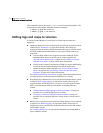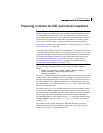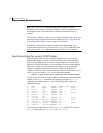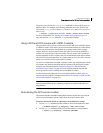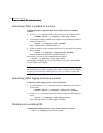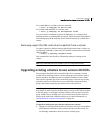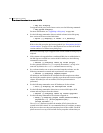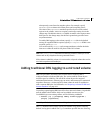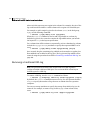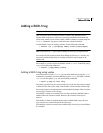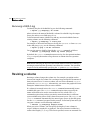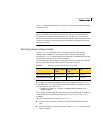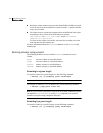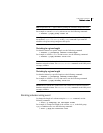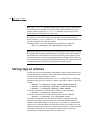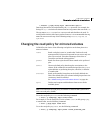
282 Administering volumes
Adding traditional DRL logging to a mirrored volume
where each bit represents one region in the volume. For example, the size of the
log would need to be 20K for a 10GB volume with a region size of 64 kilobytes.
For example, to add a single log plex for the volume vol03, in the disk group,
mydg, use the following command:
# vxassist -g mydg addlog vol03 logtype=drl
When the vxassist command is used to add a log subdisk to a volume, by
default a log plex is also created to contain the log subdisk unless you include
the keyword
nolog in the layout specification.
For a volume that will be written to sequentially, such as a database log volume,
include the logtype=drlseq attribute to specify that sequential DRL is to be
used:
# vxassist -g mydg addlog volume logtype=drlseq [nlog=n]
Once created, the plex containing a log subdisk can be treated as a regular plex.
Data subdisks can be added to the log plex. The log plex and log subdisk can be
removed using the procedure described in “Removing a traditional DRL log” on
page 282.
Removing a traditional DRL log
Note: The procedure described in this section removes a DRL log that is
configured within a dedicated DRL plex. The version 20 DCO volume layout
includes space for a DRL log.
To remove a DRL log, use the
vxassist command as follows:
# vxassist [-g diskgroup] remove log volume logtype=drl [nlog=n]
By default, the vxassist command removes one log. Use the optional attribute
nlog=n to specify the number of logs that are to remain after the operation
completes.
You can use storage attributes to specify the storage from which a log is to be
removed. For example, to remove a log on disk mydg10 from volume vol01,
enter:
# vxassist -g mydg remove log vol01 !mydg10 logtype=drl



